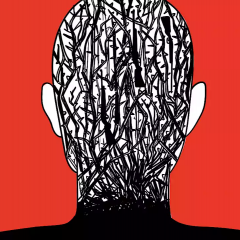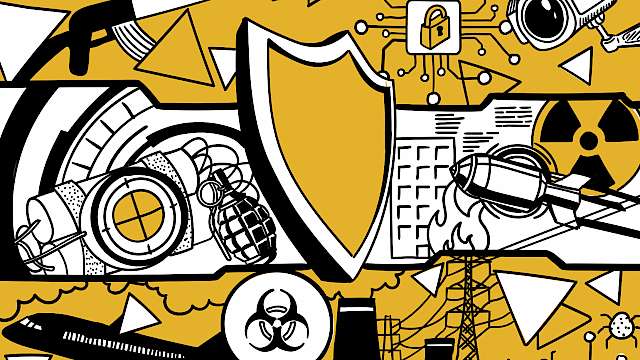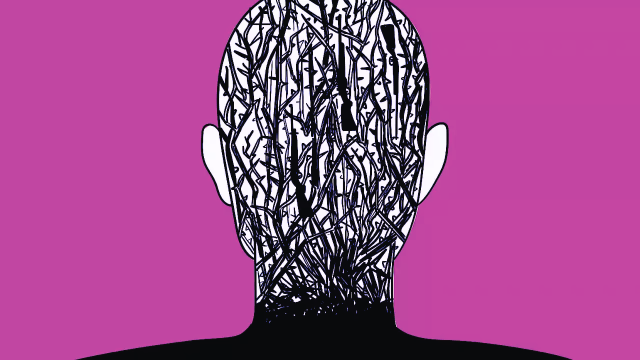Introduction
This report applies a trauma lens to research which has examined people’s experiences of interacting with the criminal justice system, with a particular focus on the counter-terrorism context. In doing so, it explores the psychological effects of these experiences and examines whether, and under what circumstances, interactions with counter-terrorism criminal justice processes might be potentially traumatising experiences for individuals and for communities.
Scope of the report
This report predominantly examines studies on the counter-terrorism system which cover a range of interactions with the criminal justice system including:
- Police stop and search
- Airports, ports and border security
- Contact with the security services
- Arrests and police raids
- Police interviews
- Detention and incarceration
- Control orders
- Family experiences
Where relevant, this report also draws on research exploring the psychological effects of interactions with the criminal justice system related to other types of (non-terrorist) offending. This broader research is used to contextualise research relating to counter-terrorism; to provide additional evidence of how contact with the criminal justice system might produce traumatising effects; and to identify important gaps in the evidence.
Key Evidence
The Psychological Effects of Counter-Terrorism Measures
Police Stop and Search
Counter-terrorist police stops may produce both direct and indirect psychological effects. Indirect effects extend beyond the individual who is stopped, and can vicariously affect families, friends, and communities.
- Being stopped and searched can be distressing and stigmatising for the individual who is stopped. The highly public nature of some police stops can exacerbate these effects.
- Perceptions that the police disproportionately target particular ethnicities or religions for counter-terrorism stops can create stigma for specific communities and local areas.
- Fears of stop and search powers being abused or conflated with other measures - such as police detention - can create anxiety.
- The widespread use of stop and search in particular areas and among particular populations – especially young, male Muslims – can contribute to perceptions of ethnic or racial targeting leading to an erosion of trust and confidence in the police.
- Perceptions of being unfairly treated by the police can exacerbate feelings of distress. In contrast, positive perceptions of procedural justice can help reduce feelings of distress.
Trauma has not been explicitly examined in relation to counter-terrorism police stop and search. However, research relating to stop and search practices in areas unrelated to counter-terrorism has identified a potential relationship with Post-Traumatic Stress Disorder (PTSD).
Airports, Ports and Border Security
Research relating to experiences with airport and border security also points to the direct and indirect effects of these interactions:
- Airport counter-terrorism security measures are commonly cited as a cause of distress, anxiety and humiliation, particularly for Muslims, or those assumed to be Muslim by airport authorities due to visible identity markers.
- Racial and religious profiling at airports in the Global North is frequently discussed in academic literature. This research argues that the disproportionate frequency with which Muslims, in particular, are subjected to stops and interrogations contributes to a broader collective narrative of unequal treatment and stigmatisation that permeates through communities and damages trust with state authorities.
- Border security practices can create a heightened sense of anxiety and stress for those with uncertain citizenship status, due to fear of the potential consequences.
- No-fly lists and passport removals can have a substantial impact on the mental well-being of those affected, potentially causing stigma and humiliation in addition to anxiety about the possible impact on their job security, housing, and family life.
Contact with the Security Services
There is a key evidence gap relating to experiences of engaging with the security services. There are very few empirically informed studies. Although some international research has been carried out on experiences in the USA, Sweden, and to some extent, the UK for example in the context of historical responses to the IRA, research remains limited and largely theoretical. However, a number of preliminary observations can be drawn from the research:
- Disruption methods by security services that include revealing that an individual is under surveillance can create stress and anxiety.
- Informing someone that they are under surveillance by the security services, and the implicit threat (whether real or perceived) of deportation, may be retraumatising for individuals with a prior history of persecution and state violence.
- The public nature of some interactions, for example, when it takes place in someone’s workplace, risks stigmatising the individual.
- Fear that others will find out about someone’s interactions with the security services can be a cause of stress and anxiety.
Arrests and Police Raids
The experience of being arrested for a counter-terrorism offence is under-researched. Whilst there is a similar evidence gap relating to experiences of counter-terrorism police raids, there has been some anecdotal discussion of this experience in the literature:
- The specific features of counter-terrorism raids and arrests – particularly the presence of a large number of police officers – may be particularly distressing.
- Counter-terrorism raids can be traumatic for family members who are present. Knowledge of the raids can also cause concern and distress among the broader community.
- Raids and arrests have the potential to create lasting stigma for the person arrested as well as their family, even when they are released without charge.
- High-profile counter-terrorism raids that receive widespread media coverage can contribute to the stigmatisation of religious or ethnic minority communities.
Police Interviews
There is a lack of empirical research into experiences of counter-terrorism police interviewing, or how these experiences may impact the interviewee.
- We found no empirical studies that examined whether being interviewed by police officers for a suspected counter-terrorism offence might be traumatising.
- Although limited, there is some evidence to suggest that if the interview process is carried out according to procedures stipulated in law, without coercion or manipulation, it may be less stressful than other points of interaction with the police for terrorism suspects.
- The ‘urgent interview’ may be an exception to the above point, as it has been suggested that it may be a moment of high tension and emotion for both the interviewer and interviewee. However, no empirical studies relating to this process were identified.
Detention and Incarceration
Studies point to the potential for detention and incarceration to be a potentially traumatising experience for those suspected or convicted of terrorist and non-terrorist offences:
- Prison can be a traumatising environment, particularly if the individual experiences or witnesses mistreatment or violence while incarcerated.
- The prison experience may be hard to overcome after release, leaving the offender with lasting psychological effects.
- Convicted or suspected terrorist offenders may have a different prison experience to non-terrorist offenders. Terrorism-related offenders may potentially experience greater stigmatisation and marginalisation from both prison staff and other prisoners.
- Indefinite detention, without trial, can have serious psychological effects, including severe depression and anxiety, and possibly even symptoms of PTSD and psychosis.
- Criminological research has suggested that prison can be a potential space of re-traumatisation for individuals with a prior history of trauma. However, this issue has yet to be explored amongst terrorist suspects or offenders.
Control Orders
Whilst control orders are no longer used in the UK, a small number of studies have previously discussed the psychological effects of this counter-terrorism power:
- Several individuals held under control orders had been detained indefinitely under previous legislation, and were already struggling with poor mental health prior to being placed under a control order. In some cases, there are indications their mental well-being deteriorated further under control orders.
- Control order restrictions and requirements had the potential to be traumatising, humiliating, and stigmatising for the wives and children of those affected.
Impacts on Families
A number of studies have explored the broader effects that one individual’s direct experiences of contact with the criminal justice system might have on family members and friends.
- Police raids and arrests can be traumatising for the family members present, particularly for children. Consequently, it has been suggested that more care and consideration should be paid to ensuring the well-being of children during police raids.
- Family members may suffer from abuse, stigmatisation and alienation from the local community because of a perceived association with terrorism. Stigmatising events can occur at various stages of the justice system process, from arrest through to release.
- Imprisonment can create additional burdens for an offender’s wife, and the experience of visiting her husband in prison – particularly with a child – can be a retraumatising event.
Strength of the Evidence
- There is limited empirical research that addresses the psychological impact of many interactions with the criminal justice system in the context of counter-terrorism, with the possible exception of experiences at airports and other border crossings.
- The evidence base relating to contact with the security services; police interviews; and arrests and police raids is particularly weak.
- Evidence is largely drawn from smaller-scale qualitative studies. Whilst these studies are crucial for understanding individual and community experiences, they cannot be used to generalise about the effects beyond those contexts.
- Trauma is rarely examined explicitly in relation to counter-terrorism. Instead, references to trauma in existing studies are largely anecdotal.
- There is some evidence to suggest that interactions with counter-terrorism criminal justice measures can be a potential source of trauma, but more research is needed.
- The evidence base relating to contact with the criminal justice system for other types of non-terrorist offending is more robust. This research provides further evidence of how such contact can produce negative psychological effects, including trauma.
Conclusions and Recommendations
It is not yet possible to comment on the extent to which the interactions between suspects, offenders, their families, and those enacting counter-terrorism measures discussed in this report are likely to be traumatising. Whilst there is evidence to suggest that each of these interactions – particularly experiences at airports – have been a source of distress for some individuals, this evidence cannot be used to generalise about these effects.
More research is needed to understand the direct and indirect psychological effects of the various interactions examined in this report. Future research might explore:
- Psychological effects that manifest at both the individual and at the community level;
- The extent to which interactions risk re-traumatising those with a history of trauma;
- The cumulative effects of repeated contact with the counter-terrorism system;
- How the conduct of practitioners might exacerbate or mitigate psychological effects;
- The potential efficacy of embedding principles of trauma-informed policing and/or procedural justice into counter-terrorism criminal justice processes.
Read more
Read more
- Choudhury, T. & Fenwick, H. (2011). The impact of counter-terrorism measures on Muslim communities. Equality and Human Rights Commission Research Report, 72.
- Guru, S. (2012). Under siege: Families of counter-terrorism. British Journal of Social Work, 42(6), 1151-1173.
- Langley, B., Ariel, B., Tankebe, J., Sutherland, A., Beale, M., Factor, R., & Weinborn, C. (2021). A simple checklist, that is all it takes: a cluster randomized controlled field trial on improving the treatment of suspected terrorists by the police. Journal of experimental criminology, 17(4), 629-655.
- Schclarek Mulinari, L. (2019). The spectrum of repression: Swedish Muslims’ experiences of anti-terrorism measures. Critical criminology, 27(3), 451-466.
- Sentas, V. (2016). Policing the diaspora: Kurdish Londoners, MI5 and the proscription of terrorist organizations in the United Kingdom. British Journal of Criminology, 56(5), 898-918.
References
- Abbas, M. (2018). Producing “internal suspect bodies”: divisive effects of UK counter-terrorism measures on Muslim communities in Leeds and Bradford. British Journal of Sociology.
- Abbas, M. S. (2019). ‘I grew a beard and my dad flipped out!’ Co-option of British Muslim parents in countering ‘extremism’ within their families in Bradford and Leeds. Journal of Ethnic and Migration Studies, 45(9), 1458-1476.
- Arditti, J. A. (2012). Child trauma within the context of parental incarceration: A family process perspective. Journal of Family Theory & Review, 4(3), 181-219.
- Arditti, J. A., & Savla, J. (2015). Parental incarceration and child trauma symptoms in single caregiver homes. Journal of Child and Family Studies, 24(3), 551-561.
- Bailliet, C. M. (2007). ‘War in the home’: an exposition of protection issues pertaining to the use of house raids in counterinsurgency operations. Journal of Military Ethics, 6(3), 173-197.
- Blackwood, L., Hopkins, N., & Reicher, S. (2013). I know who I am, but who do they think I am? Muslim perspectives on encounters with airport authorities. Ethnic and racial studies, 36(6), 1090-1108.
- Blackwood, L., Hopkins, N., & Reicher, S. (2015). 'Flying while Muslim': citizenship and misrecognition in the airport. Journal of Social and Political Psychology, 3(2), 148-170.
- Bont, E. (2020). Moral injury in Provisional IRA members: Preliminary evidence of moral beliefs injuring, protecting & disillusioning. Terrorism and Political Violence.
- Brittain, V. (2009). Besieged in Britain. Race & Class, 50(3), 1-29.
- Bryant‐Davis, T., Adams, T., Alejandre, A., & Gray, A. A. (2017). The trauma lens of police violence against racial and ethnic minorities. Journal of Social Issues, 73(4), 852-871.
- Bull, M., & Rane, H. (2019). Beyond faith: social marginalisation and the prevention of radicalisation among young Muslim Australians. Critical Studies on Terrorism, 12(2), 273-297.
- Chaudhri, S., Zweig, K. C., Hebbar, P., Angell, S., & Vasan, A. (2019). Trauma-informed care: a strategy to improve primary healthcare engagement for persons with criminal justice system involvement. Journal of general internal medicine, 34(6), 1048-1052.
- Cherney, A. (2021). The release and community supervision of radicalised offenders: Issues and challenges that can influence reintegration. Terrorism and Political Violence, 33(1), 119-137.
- Choudhury, T. & Fenwick, H. (2011). The impact of counter-terrorism measures on Muslim communities. Equality and Human Rights Commission Research Report, 72.
- Corner, E. & Gill, P. (2020). Psychological distress, terrorist involvement and disengagement from terrorism: A sequence analysis approach.
- Desai, S. R. (2019). “Hurt people, hurt people”: The trauma of juvenile incarceration. The Urban Review, 51(4), 638-658.
- DeVeaux, M. (2013). The trauma of the incarceration experience. Harvard Civil Rights-Civil Liberties Law Review, 48(1), 257-278.
- Geller, A., Fagan, J., Tyler, T., & Link, B. G. (2014). Aggressive policing and the mental health of young urban men. American Journal Of Public Health, 104(12), 2321–2327.
- Gillespie-Smith, K., Brodie, Z., Collins, K., Deacon, K. & Goodall, K. (2020). Moving Towards Trauma-informed Policing: An Exploration of Police Officer's Attitudes and Perceptions Towards Adverse Childhood Experiences (ACEs). The Scottish Institute for Policing Research.
- Guru, S. (2012). Under siege: Families of counter-terrorism. British Journal of Social Work, 42(6), 1151-1173.
- Hickman, M. J., Thomas, L., Nickels, H. C. and Silvestri, S. (2012). Social cohesion and the notion of 'suspect communities': A study of the experiences and impacts of being 'suspect' for Irish communities and Muslim communities in Britain. Critical Studies on Terrorism, 5(1), 89-106.
- Independent Office of Police Conduct (2022). National Stop and Search Learning Report.
- Jackson, D. B., Fahmy, C., Vaughn, M. G., & Testa, A. (2019). Police stops among at-risk youth: Repercussions for mental health. Journal of Adolescent Health, 65(5), 627-632.
- Jakobsen, K. K., Langballe, Å., & Schultz, J. H. (2017). Trauma-exposed young victims: possibilities and constraints for providing trauma support within the investigative interview. Psychology, Crime & Law, 23(5), 427-444.
- Jakobsen, K. K. (2021). Empathy in investigative interviews of victims: How to understand it, how to measure it, and how to do it? Police Practice and Research, 22(2), 1155-1170.
- Jarvis, L., & Lister, M. (2017). ‘As a woman…’;‘As a Muslim…’: Subjects, positions and counter-terrorism powers in the United Kingdom. Critical social policy, 37(2), 245-267.
- Jonathan‐Zamir, T., Hasisi, B., & Margalioth, Y. (2016). Is It the What or the How? The Roles of High‐Policing Tactics and Procedural Justice in Predicting Perceptions of Hostile Treatment: The Case of Security Checks at Ben‐Gurion Airport, Israel. Law & Society Review, 50(3), 608-636.
- Jones, C. R. (2014). Are prisons really schools for terrorism? Challenging the rhetoric on prison radicalization. Punishment & Society, 16(1), 74-103.
- Jones, C.D. (2020) Study on the Mental and Emotional Cost of Incarceration. Open Journal of Medical Psychology, 9, 41-49.
- Kapoor, N., & Narkowicz, K. (2019). Unmaking citizens: passport removals, pre-emptive policing and the reimagining of colonial governmentalities. Ethnic and Racial Studies, 42(16), 45-62.
- Langballe, Å., & Schultz, J. H. (2017). ‘I couldn’t tell such things to others’: trauma-exposed youth and the investigative interview. Police Practice and Research, 18(1), 62-74.
- Langley, B., Ariel, B., Tankebe, J., Sutherland, A., Beale, M., Factor, R., & Weinborn, C. (2021). A simple checklist, that is all it takes: a cluster randomized controlled field trial on improving the treatment of suspected terrorists by the police. Journal of experimental criminology, 17(4), 629-655.
- Lewis, J. & Marsden, S. V. (2020). Public Experiences of the UK Counter-Terrorism System. Lancaster: Centre for Research and Evidence on Security Threats (CREST).
- Lewis, J. & Marsden, S. V. (2021). Trauma, Advesity and Violent Extremism. Lancaster: Centre for Research and Evidence on Security Threats (CREST).
- Liem, M., & Kunst, M. (2013). Is there a recognizable post-incarceration syndrome among released “lifers”?. International journal of law and psychiatry, 36(3-4), 333-337.
- Litz, B. T., Stein, N., Delaney, E., Lebowitz, L., Nash, W. P., Silva, C., & Maguen,S. (2009). Moral injury and moral repair in war veterans: A preliminary model and intervention strategy. Clinical Psychology Review, 29(8), 695–706.
- Loftus, B., Bacon, M., & Skinns, L. (2022). The moral and emotional world of police informants. The Police Journal.
- Lopez, W. D., Novak, N. L., Harner, M., Martinez, R., & Seng, J. S. (2018). The traumatogenic potential of law enforcement home raids: An exploratory report. Traumatology, 24(3), 193.
- Maschi, T., Viola, D., & Koskinen, L. (2015). Trauma, stress, and coping among older adults in prison: Towards a human rights and intergenerational family justice action agenda. Traumatology, 21(3), 188.
- Mazerolle, L., Bennett, S., Davis, J., Sargeant, E. & Manning, M. (2013). Legitimacy in policing: A systematic review. Campbell Systematic Reviews, 9: i-147.
- Meade, B., Steiner, B., & Klahm IV, C. F. (2017). The effect of police use of force on mental health problems of prisoners. Policing and society, 27(2), 229-244.
- Miller, N. A., & Najavits, L. M. (2012). Creating trauma-informed correctional care: A balance of goals and environment. European journal of psychotraumatology, 3(1), 17246.
- Minhas, R., Walsh, D., & Bull, R. (2017). An exploration of perceptions of real-life suspects’ from the Asian Muslim community relating to the police interviewing practices in England. Journal of Policing, Intelligence and Counter Terrorism, 12(2), 158-174.
- Moloney, K. P., van den Bergh, B. J., & Moller, L. F. (2009). Women in prison: The central issues of gender characteristics and trauma history. Public health, 123(6), 426-430.
- Morgan-Mullane, A. (2018). Trauma focused cognitive behavioral therapy with children of incarcerated parents. Clinical social work journal, 46(3), 200-209.
- Mythen, G., Walklate, S., & Khan, F. (2013). ‘Why should we have to prove we’re alright?’: Counter-terrorism, risk and partial securities. Sociology, 47(2), 383-398.
- Nagra, B., & Maurutto, P. (2016). Crossing borders and managing racialized identities: Experiences of security and surveillance among young Canadian Muslims. Canadian Journal of Sociology, 41(2), 165-194.
- Nagra, B., & Maurutto, P. (2020). No-fly lists, national security and race: The experiences of Canadian Muslims. The British Journal of Criminology, 60(3), 600-619.
- Pearse, J. (2009). The investigation of terrorist offences in the United Kingdom: The context and climate for interviewing officers. In R. Bull, T. Valentine & T. Williamson (Ed.), Handbook of psychology of investigative interviewing. Current developments and future directions (pp. 69-90).
- Plümecke, T., Wilopo, C. S., & Naguib, T. (2022). Effects of racial profiling: the subjectivation of discriminatory police practices. Ethnic and Racial Studies, 1-21.
- Poehlmann‐Tynan, J., & Turney, K. (2021). A developmental perspective on children with incarcerated parents. Child Development Perspectives, 15(1), 3-11.
- Powis, B., Wilkinson, K., Bloomfield, S., & Randhawa-Horne, K. (2019). Separating Extremist Prisoners: A Process Study of Separation Centres in England and Wales from a Staff Perspective. London: Ministry of Justice.
- Ragazzi, F. P. S. M., Davidshofer, F., Perret, S., & Tawfik, A. (2019). The Effects of Counter-Terrorism and Counter-Radicalisation Policies on Muslim Populations in France: A Quantitative Study. Centre D’Etude Sur Les Conflits, Liberte, Securite (CCLS).
- Risan, P., Binder, P. E., & Milne, R. (2016). Regulating and coping with distress during police interviews of traumatized victims. Psychological trauma: theory, research, practice, and policy, 8(6), 736.
- Risan, P., Binder, P. E., & Milne, R. J. (2018). Establishing and maintaining rapport in investigative interviews of traumatized victims: A qualitative study. Policing: A Journal of Policy and Practice, 12(4), 372-387.
- Robbins, I., MacKeith, J., Davison, S., Kopelman, M., Meux, C., Ratnam, S., . . . Taylor, R. (2005). Psychiatric problems of detainees under the Anti-Terrorism Crime and Security Act 2001. Psychiatric Bulletin, 29(11).
- Roberts, K. (2011). Police urgent interviews with terrorist suspects under PACE: Risks and mitigation. IPES Working Paper, 36.
- Rufaedah, A., & Putra, I. E. (2018). Coping with stigma and social exclusion of terror-convicts' wives in Indonesia: An interpretative phenomenological analysis. The Qualitative Report, 23(6), 1334-1346.
- Rushchenko, J. (2019). Terrorist recruitment and prison radicalization: Assessing the UK experiment of ‘separation centres.’ European Journal of Criminology, 16(3), 295–314.
- Sabir, R. (2022). The Suspect: Counterterrorism, Islam, and the Security State. London: Pluto Press.
- Schclarek Mulinari, L. (2019). The spectrum of repression: Swedish Muslims’ experiences of anti-terrorism measures. Critical criminology, 27(3), 451-466.
- Sentas, V. (2016). Policing the diaspora: Kurdish Londoners, MI5 and the proscription of terrorist organizations in the United Kingdom. British Journal of Criminology, 56(5), 898-918.
- Spalek, B. (2011). ‘New Terrorism’ and Crime Prevention Initiatives Involving Muslim Young People in the UK: Research and Policy Contexts. Religion, State and Society, 39(2-3), 191-207.
- Speckhard, A., & Akhmedova, K. (2005). Talking to terrorists. Journal of Psychohistory, 33(2), 125.
- Terry, A. N., & Williams, L. S. (2021). On the outside looking in: Rural girls, trauma, and involvement in the criminal justice system. Journal of Aggression, Maltreatment & Trauma, 30(3), 368-388.
- Thomas, P., Grossman, M., Miah, S., & Christmann, K. (2017). Community reporting thresholds: Sharing information with authorities concerning violent extremist activity and involvement in foreign conflict: A UK replication study. Research Report. CREST (Centre for Research and Evidence on Security Threats).
- Turney, K. (2018). Adverse childhood experiences among children of incarcerated parents. Children and Youth Services Review, 89, 218-225.
- Tyler, T. R., Fagan, J., & Geller, A. (2014). Street Stops and Police Legitimacy: Teachable Moments in Young Urban Men's Legal Socialization. Journal of Empirical Legal Studies, 11(4), 751–785.
- Williams, J. M., Spencer, Z., & Wilson, S. K. (2021). I am not your felon: Decoding the trauma, resilience, and recovering mothering of formerly incarcerated Black women. Crime & Delinquency, 67(8), 1103-1136.
- Zedner, L. (2007). Preventive justice or pre-punishment? The case of control orders. Current Legal Problems, 60(1), 174-203.
Copyright Information
As part of CREST’s commitment to open access research, this text is available under a Creative Commons BY-NC-SA 4.0 licence. Please refer to our Copyright page for full details.
IMAGE CREDITS: Copyright ©2024 R. Stevens / CREST (CC BY-SA 4.0)






